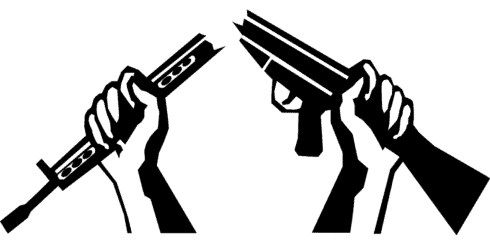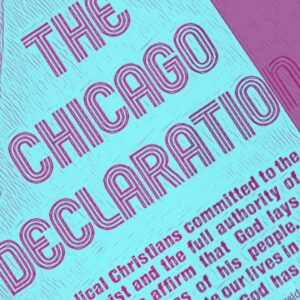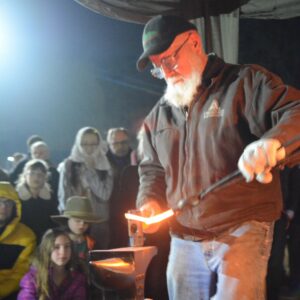
I know it works. Millions of people around the world have risked life and limb to make it happen. But I don’t know, when it comes down to it, if I have the courage or moral strength to do it myself.
In country after country, against the world’s worst governments, tyrants, military invaders and dictators, people have put their lives on the line by confronting the violent use of repression, intimidation, torture and imprisonment with nonviolent weapons of non-cooperation, civil-disobedience, strikes, sit-ins, rallies, vigils, politics and boycotts.
The question is not whether nonviolence works, but why it hasn’t been acknowledged, advocated, taught and put into practice more often? No other form of conflict has created such long-lasting and peaceful results as that of nonviolence.
Nonviolence is far from a passive activity. It requires deep introspection, continual self-awareness, strategizing, commitment, patience and direct and indirect action.
As seen throughout history, it is imperative that the means match the ends. If you want a peaceful society you can’t use violence to create it. If you desire less hatred, bigotry and vengeance in the world, you have to see it in yourself and practice removing it from your own life.
If you want a peaceful society you can’t use violence to create it.
A Jewish man, known as Jesus of Nazareth, repeatedly and adamantly advocated love and nonviolence and was willing to suffer torture and death by the Romans for his beliefs. His actions and words have since influenced the lives of millions.
About 500 years before Jesus, the Buddha of Gotama preached an end to the caste system in India and, contrary to all rules, laws and expectations of his time, accepted disciples from all castes.
In 1905 an Eastern Orthodox priest led over 150,000 Russians to the capital to protest the government. That march led to the first popularly elected parliament in that nation’s history.
In the early 1930s Mahandas Gandhi first called for mass civil disobedience against the British. His call for active Satyagraha (truth force) resulted in India’s democratic independence in 1947.
Danish citizens refused to aid the Nazi war effort and forced the Germans to end blockades and curfews during their occupation of Denmark.
Without picking up a single gun Salvadorans forced their longtime military dictator into exile in 1944.
Martin Luther King, Jr., using many of the non-violent tactics of Gandhi, helped mobilize Americans to end racial segregation in the South.
Cesar Chavez peacefully rallied farmworkers to demand better working conditions for the men and women that harvest our country’s food.
Laborers went on strike, won the right to organize and, with the help of the Catholic Church and Solidarity, nonviolently brought down a totalitarian form of communism in Poland.
A group of mothers marched in the capitol of Argentina demanding to know the whereabouts of their abducted sons. After years of being intimidated, tortured and imprisoned themselves, their persistence helped oust the country’s military junta.
In the Philippines in 1986, a coalition of citizens, outraged with the government-supported assassination of a returning exiled politician, massed to support his widow Corazin Aquino. After defying continued brutality, censorship and threats by the Armed Forces under Ferdinand Marcos, the people, with the help of the church, struck at the conscience of military officers who eventually refused to follow Marcos’ orders.
South Africans waged a decades-long nonviolent campaign to end Apartheid. Their actions eventually led to the freeing of Nelson Mandela and a democratically elected government in which every person’s vote had equal value.
Over 100,000 students in the Czech republic sat down in the streets demanding freedom. Their example set off a wave of protest that washed away totalitarian regimes in Hungary, Bulgaria, Mongolia and East Germany.
At the turn of the century the Serbian dictator Slobodan Milosevic was defeated and his security forces neutralized by a general strike and nonviolent uprising.
These examples are but a few of the many inspiring practical applications of nonviolence, but how do we become brave enough to do it? How do we get to the point where we are willing to risk losing our job, go to prison, be assaulted or killed? How do we stand up to evil without becoming like those we confront? How do we separate evil acts from the people perpetrating them and still stop their actions without demonizing them in the process?
How do we stand up to evil without becoming like those we confront? How do we separate evil acts from the people perpetrating them and still stop their actions without demonizing them in the process?
I like to think that my life and what I am doing with it make a difference. I tell myself that working as a grief counselor, a writer and making donations to non-profits helps others. I believe raising healthy children, working with human rights organizations and using non-polluting energy for my car and home all have an impact. Then again, they are all safe and convenient.
Sure, I’ve marched in protest rallies and been arrested for blocking nuclear weapons facilities, but I knew the worst thing that would happen would be a couple of hours in detention or an overnight stay in the slammer. If I faced the prospect of years in prison, large fines, torture, a criminal record or being exiled from my country and family – would I have done the same thing? I doubt it.
Am I willing to stop paying taxes, get fined and go to jail? No. Am I spending time organizing other citizens to insist on less military spending and greater humanitarian interventions around the world? No. Am I fully putting my body and deeds where my heart and beliefs lead me? No.
The reality is that I pay others to protect me with violent means. By paying my taxes I pay for law enforcement and military personal to carry and use weapons to theoretically keep my family, community and nation out of harm’s way. The money I pay to our government helps research, design, produce and use weapons of mass destruction and military intimidation and violence.
If someone threatened my son, daughter or mate, would I have the courage to stand my ground and resolve the conflict nonviolently without striking back? I hope so, but I’m not sure. If someone threatened my neighbor or someone I didn’t know, would I take the same brave stand for them as I would for my loved ones?
And if our government or military decided to stage a coup, ban free speech, freedom of assembly or the right to vote, would I face these actions honorably and use nonviolent means to confront them? Or would I go about my business as usual, hoping nothing would happen to my family and let someone else take the risk to speak out?
I like to see myself as an advocate for justice, peace and freedom, but now I’m not so sure. How much of the justice, peace and freedom I seek are for my own selfish desires and how much is for the rest of my brothers and sisters on this increasingly violent and self-destructive planet? Am I willing to put my life or my “way of life” on the line for anybody?
Gabriel Constans is a counselor, educator and author.


